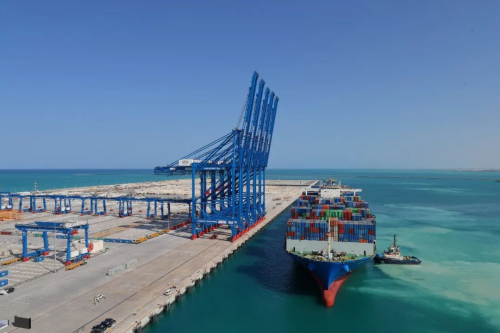Is the transportation of goods from China to Saudi Arabia affected by exchange rate fluctuations?
As an international freight forwarding agent company, we have conducted in-depth research on various factors that may be involved in the transportation of goods, one of which is exchange rate fluctuations. In recent years, there has been widespread attention to whether the transportation of goods shipping from China to Saudi Arabia is affected by exchange rate fluctuations. In this article, we will explore this issue and provide some suggestions on how to deal with exchange rate fluctuations.
The impact of exchange rate fluctuations on international trade
Firstly, let's understand the potential impact of exchange rate fluctuations on international trade. Currency exchange rate fluctuations may lead to changes in the cost of transporting goods, as the value of currencies between different countries may change. This change may have a direct impact on the pricing, cost, transportation costs, and transportation profits of goods.
Exchange rate fluctuations may lead to the following situations:
Cost volatility: If the currency depreciates, it may lead to an increase in import costs, while currency appreciation may lower costs. This has potential financial implications for both importers and exporters.
Pricing issue: Exchange rate fluctuations may require reconsidering the pricing strategy of goods to ensure competitiveness under different exchange rate scenarios.
Profit impact: The gross profit of international freight forwarding agent companies may be affected by currency fluctuations, especially if they trade in multiple currencies.

Strategies for dealing with exchange rate fluctuations
To address the impact of exchange rate fluctuations on the transportation of goods shipping from China to Saudi Arabia, the following are some suggestions:
Currency diversification: Adopting a strategy of settling in multiple currencies can mitigate the risks associated with fluctuations in a single currency. This means that multiple currencies can be used when necessary to reduce trade risks.
Currency risk management: The use of financial instruments such as option contracts or forward contracts to manage currency risk. This can help companies lock in currency exchange rates to reduce uncertainty.
Real time monitoring: Track exchange rate changes and adjust strategies in real time to ensure consistency between your cargo transportation strategy and exchange rate fluctuations.
Contract terms: Clearly specify the currency settlement method in the contract to mitigate disputes and uncertainties.
In summary, the transportation of goods shipping from China to Saudi Arabia may be affected by exchange rate fluctuations. However, by adopting appropriate strategies and risk management measures, international freight forwarding agent companies and enterprises can mitigate these impacts and ensure the sustainability of goods transportation in volatile market environments. In this field, professional international freight forwarding agent partners and financial experts can provide valuable support and advice to help enterprises effectively manage exchange rate risks.




